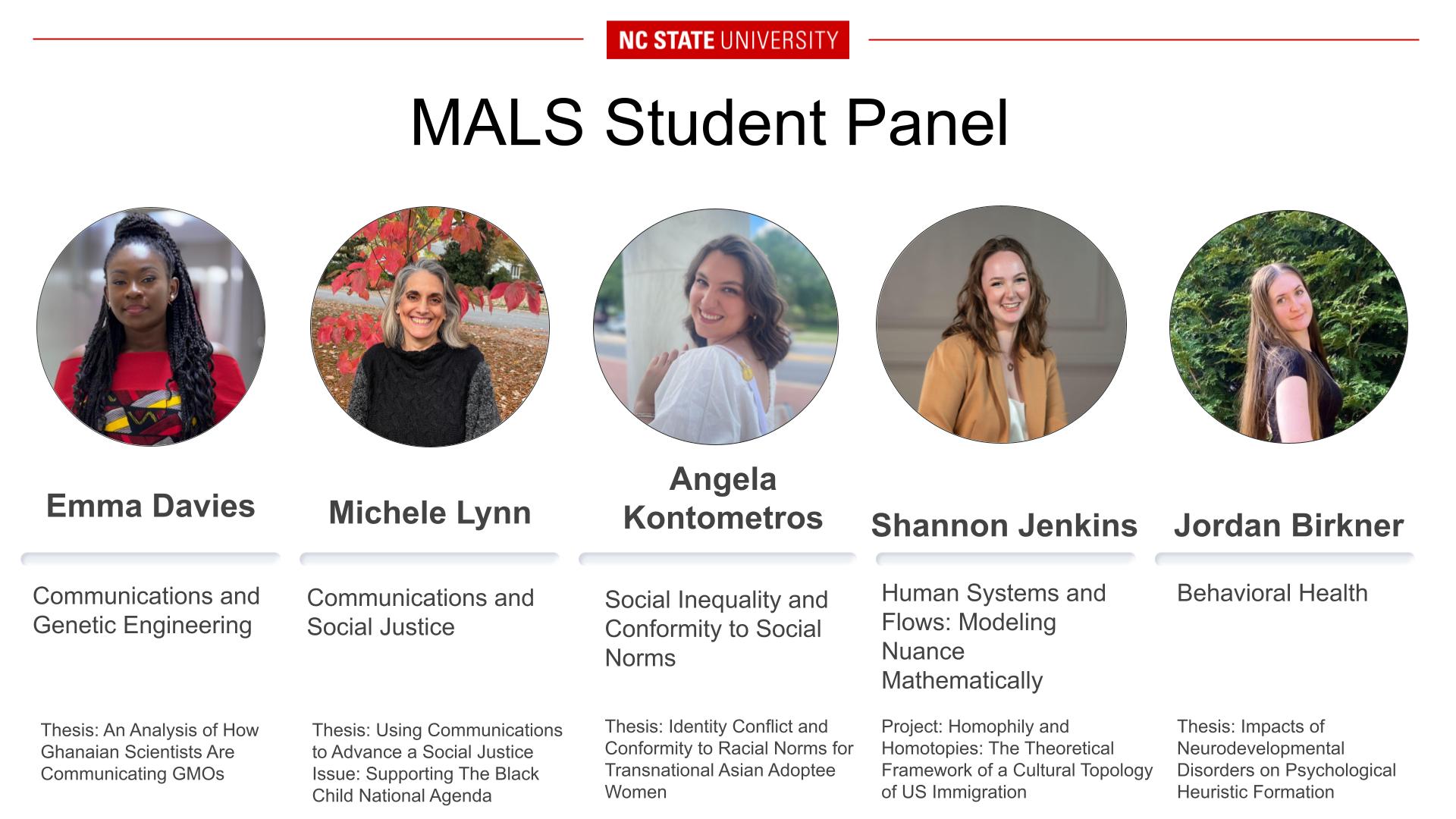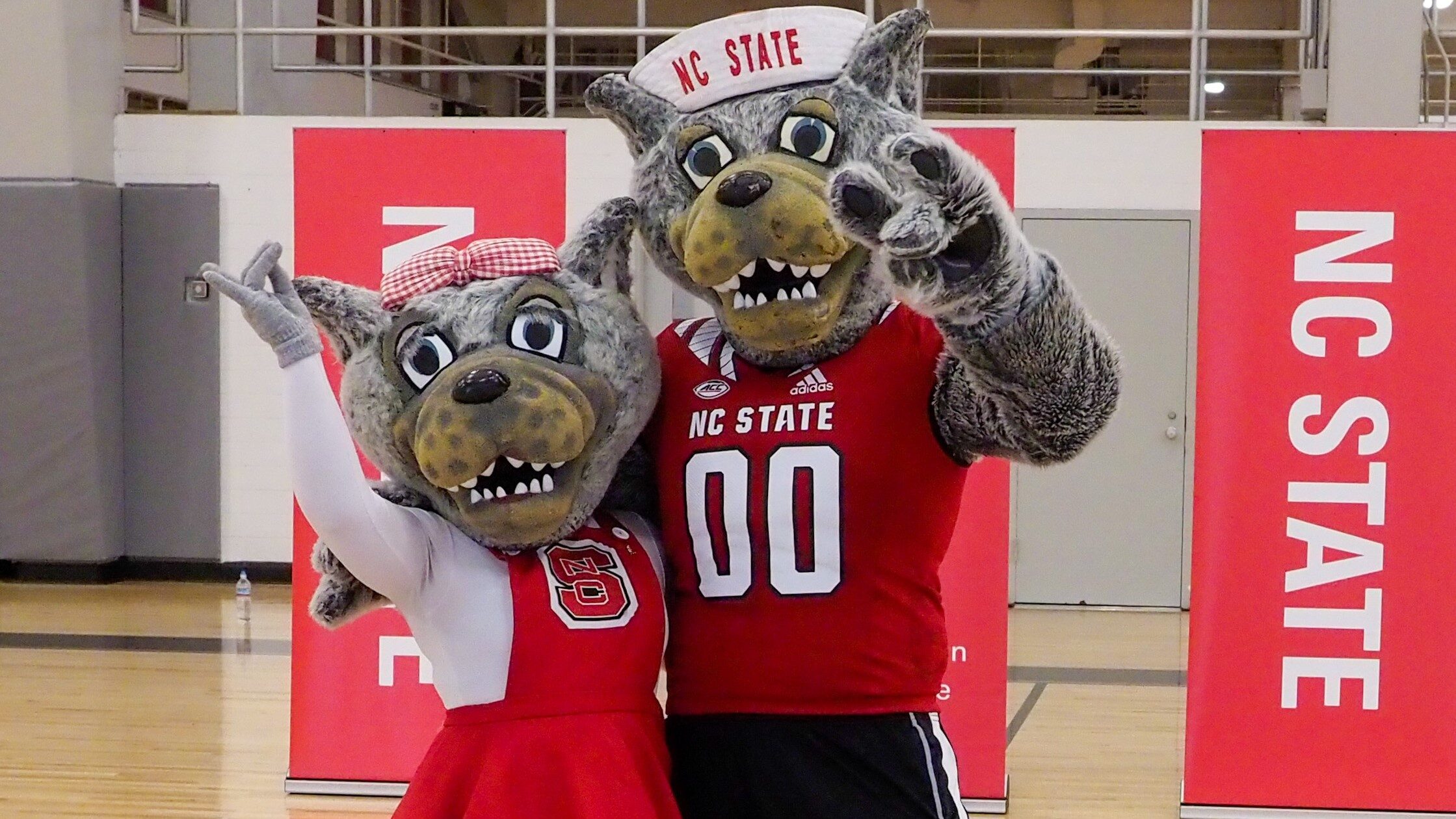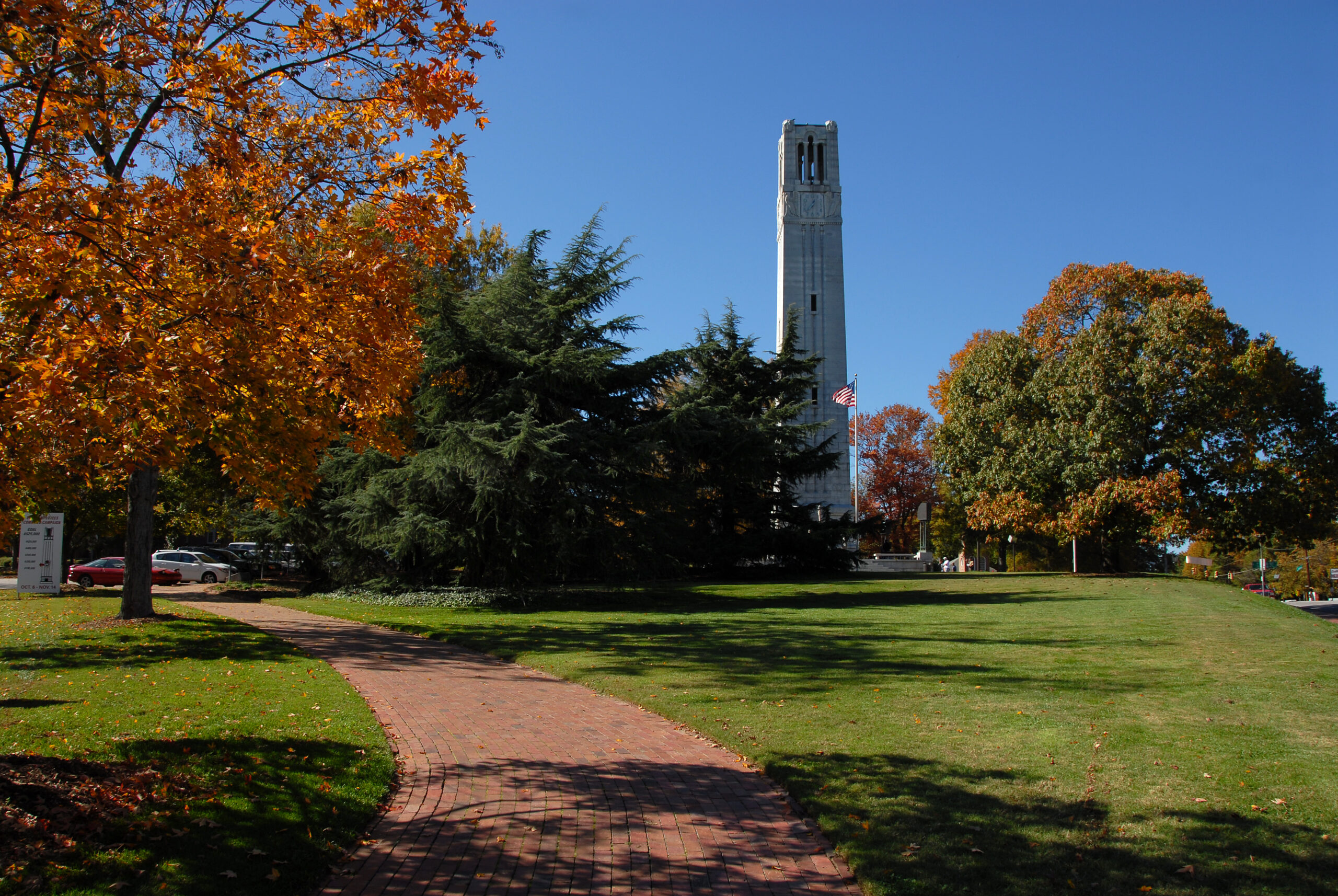MALS Communicators: Natalie Hampton, David Hunt and Christopher Pfitzer
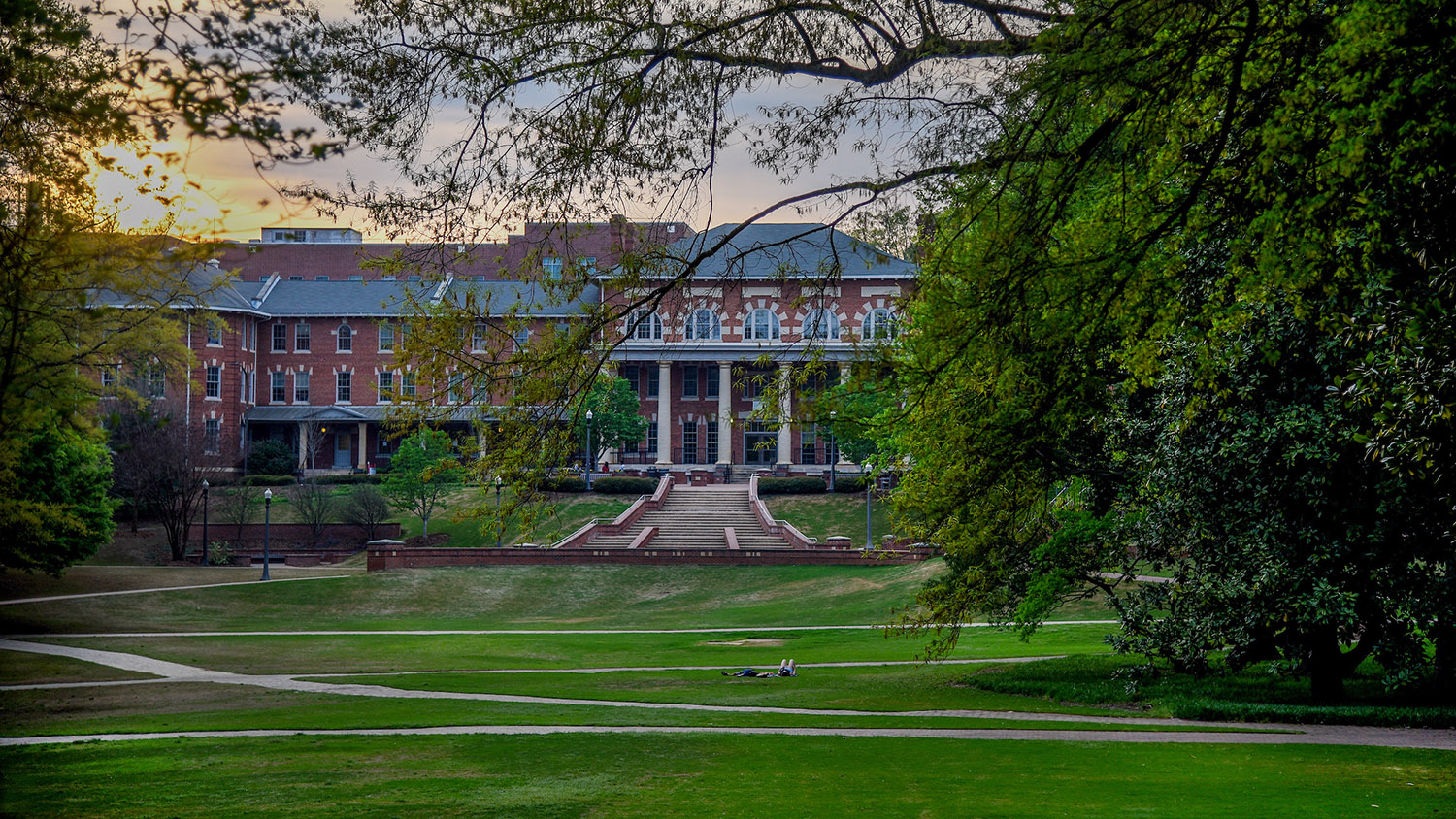
Natalie Hampton, MALS ’09
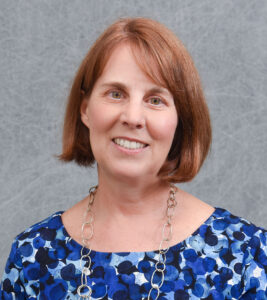
What is your current position? What do you enjoy most about your current position?
Most recently, I was the director of communications and marketing for NC State’s Graduate School. In that role, I would oversee communications to all Graduate School audiences, including our students, support staff for graduate students, and graduate alumni. I provided some support for marketing to prospective students as well. We used a variety of tools to reach people, including social media channels, our website, an e-newsletter for students and a digital magazine for our alumni. My role included writing, coordinating photography and video production, and developing a marketing strategy to use all our tools. For me, the most rewarding part of the job was getting to know graduate students and tell their stories. Students are so grateful when someone pays attention to their work and wants to share it with others. They are all so smart, and they give me great hope for our future. The hardest part in the past year was being separated from campus. Like most university employees, I was working from home beginning in March 2020, and I really missed having contact with my colleagues. Before the pandemic I had planned to retire in 2020, and working from home made it clear to me that there was no reason to change my plans. I retired from NC State in December 2020. For a long time, I have written a blog about North Carolina beer and wine, and my retirement plan is to turn that interest into a tourism business. So that’s what I’ve been working on since January.
What is a typical work day like for you?
In communications, I would say there is no typical day. Sometimes I had meetings about communications issues, sometimes I would write, sometimes I would be out on a photo shoot for a story. Each day was busy, and there were always more stories than we could ever possibly tell, but I loved the variety of experiences I had. COVID took everything to a home office environment — virtual meetings, phone calls, making photo assignments, but not attending the shoots. I really missed the interaction with other communications professionals on campus. Since I’ve retired, I have tried to maintain some of the same habits I had in my last job — creating a to-do list for the week, checking email and social media accounts, participating in virtual training opportunities, contacting brewers and winemakers that I would like to work with, and networking whenever possible. The nice thing about retirement is that I can set my own schedule, so I’m free to take a bike ride or go for a hike with friends when I want to.
How did the MALS program at NC State prepare you for your current position?
I was working in agriculture when I was a student in the MALS program, and I chose my topic — Global Food and Agriculture Systems — because I wanted to learn more about how food was grown, traded and shared around the world. What were the factors that cause some countries to be food insecure while others can’t consume all they produce? The course of study I chose definitely helped me better understand those issues, and gave me hope that one day we will solve the problem of world hunger. I finished my graduate program in 2009, and six years later, I took a new job with the Graduate School. I wasn’t sure that my studies would help as much in that role, but I quickly discovered that having been a graduate student at NC State helped me to better understand some of the challenges that grad students face. So the experience continued to be valuable. At one time, I thought that graduate school was supposed to answer all of your academic questions. But what I learned through MALS is that graduate school helps you get started answering the questions and gives you a framework to continue seeking new knowledge. As I look to a new career in tourism, I believe that the framework of learning and seeking answers will continue to serve me well.
What was your favorite part of the MALS program?
I think my favorite part of MALS was getting to know other students, including many international students. They always had interesting perspectives on our subject matter and helped us to see the world from beyond our own borders. MALS students are so interesting — often more mature, established in their careers, busy with work and family, yet motivated to learn something new. The projects that my fellow students developed amazed and inspired me. I chose MALS because when I was looking for a graduate program, I realized that I am truly a cross-disciplinary thinker. In my undergraduate experience, I really enjoyed looking at issues across different disciplines and making connections that gave me a broader understanding. So MALS was a perfect fit for the subject I wanted to study. I took seminars and courses in economics, sociology, agriculture, history and natural resources. It was all relevant to Global Food and Agriculture Systems.
What advice do you have for students considering a career in your field?
When I was an undergraduate studying journalism, my curriculum focused almost exclusively on writing content for print, since I wanted to work in newspapers. At the time, most journalism students focused on just one medium — news/editorial, photography, broadcasting or advertising. When I started my professional career in newspapers, computers had just come to the newsroom. In my very first job at NC State in 1983, I started out working on a typewriter! In our office, we would send university press releases out via snail mail. Then we got a fax machine, and later, came the internet and websites, e-publications and social media. That shows you just how much communications has changed in the last 40 years. I would advise anyone entering the field of communications today to learn as many skills as you can — writing, web development, social media strategy, branding, marketing, photography and videography. And be prepared to continue learning new technologies as they arise. If I had stopped learning in 1983, I might still be working on a typewriter.
David Hunt, MALS ’17
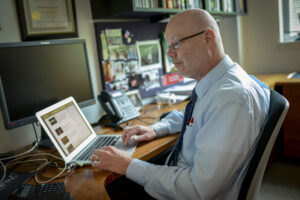
What is your current position? What do you enjoy most about your current position? What do you find most challenging?
I’m director of editorial services in University Communications and Marketing at NC State.
I love working on projects with a diverse team in UCOMM to tell stories that demonstrate the impact of NC State’s teaching, research and service. I’m fortunate to have colleagues who are passionate about their work and committed to creating high-quality content for the university’s websites, publications and social media platforms. Our team includes highly skilled writers, project managers, videographers, photographers, designers, web developers and event planners. Our work is reflected in things as diverse as the chancellor’s fall address, Day of Giving, the ncsu.edu website and our biennial employee engagement survey. Thanks to our strong brand platform, we are able to deliver consistent, targeted messages to our key audiences that support NC State’s strategic goals.
The most challenging aspect of my job is staying informed of the many happenings at the university that need to be communicated to our audiences. This includes everything from new policies and research findings to student scholarships, faculty honors and campus events.
What is a typical work day like for you?
A typical day includes checking in with my team to learn if they have any issues that I can help resolve. I spend some time researching and writing articles for the Bulletin, our internal news channel. I’m currently working on an article about how the pandemic exacerbated food and housing insecurity for our students, and how the university is responding. I am also preparing to interview a faculty member who is retiring after nearly four decades at NC State. I’m reading a couple of his books so I can better understand his research area, which is the role of outdoor play in child development. I typically attend several meetings a day for things like strategic planning, content planning and networking. I serve on standing committees for employee engagement, the university wellness initiative, the electronic research administration initiative, diversity and inclusion, and internal communications. I am often asked to proofread messages that have been crafted to inform students and employees of policy changes related to COVID-19 and other topics.
How did the MALS program at NC State prepare you for your current position?
My MALS concentration — communication and social change — included coursework in communication theory, organizational development and change management, global problems and policies, the history of the civil rights movement and international studies. I admit that although I had worked in the field of public communication my entire career, I did not have a thorough understanding of its theoretical foundation. The simple question I had when I began my MALS journey was, “Why do public communication campaigns sometimes succeed and sometimes fail?” I felt as though I had been working blindfolded for years.
Through my coursework, I learned how people process information in different ways based on the relevance of the message to them. I learned how to craft messages in ways that bypass the reader’s internal critic. Beyond that, I also learned why change is such a difficult process for most of us, and how to champion change in a positive way.
The year after I completed my MALS degree, I was given the opportunity to establish the editorial services unit. I’m proud to say we now have a diverse team of five professionals with a wide range of backgrounds, experiences and strengths. I believe that the knowledge I gained pursuing my MALS degree prepared me to lead and support the team as we work together to engage key university audiences.
What was your favorite part of the MALS program?
My favorite part of the program was the requirement to complete two or three MALS seminars. These were courses that I would not ordinarily have added to my mix of courses but which had profound influences on me. For example, Michael Garval’s Food for Thought course introduced me to something I had never considered before: the source of the food I eat every day. The central question of the course — whether we eat better now than before — led me to take a hard look at what it means to eat well. I now think about the food that I eat, and I follow a plant-based diet. Food is now a source of joy and gratitude, rather than an afterthought.
Another MALS seminar, Leila May’s Women and Madness course, delved into the ways gender, race, sexuality and class intersect with female identity. The course examined the history of how women’s emotional and physical response to oppressive social norms came to be labeled “hysteria” and “female maladies.” While those terms are no longer used by the medical profession, women still confront biases in the ways their physical and mental health needs are characterized and minimized. My mother’s emotional health was impacted for the rest of her life because she was shamed into not grieving the death of a baby daughter in the 1950s. The course had such an impact on me that I chose to produce an educational video in collaboration with a postpartum support group for my final MALS project.
What advice do you have for students considering a career in your field?
Public communication is a rewarding career that has given me the opportunity to satisfy my desire to be a lifelong learner. If you enjoy the challenge of taking complex information and making it understandable to a wide audience, then communication is a great choice for you. To be successful, you have to learn and practice clear, concise, engaging writing. You must read high-quality writing, no matter the subject, to get a feel for the language and the ways you can use it to convey emotion and engage your audience. You must also practice writing, as much as you can, and get feedback from other writers. Over four decades ago, my mentor advised me, “Read everything; write anything.” That’s still great advice for new and veteran communicators. Once you’re confident in your skills as a writer, you can apply those skills to virtually any communication channel, including video, podcasts, the web, print media and social media. You can also expand your skills to include visual communication, such as design and photography.
As anthropologists have told us, storytelling is central to the human experience. It’s the way we make meaning of the world and our place in it. What could be more challenging — and fulfilling — than making that your life’s work?
Christopher Pfitzer, MALS ’11
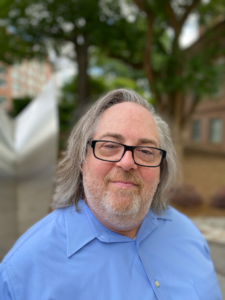
What is your current position? What do you enjoy most about your current position? What do you find most challenging?
I am the Transparency Operations Lead at UCB BioPharma. In this role, I manage the policies and processes that ensure information and results about the research UCB conducts is available for patients, the public, and other researchers. I like that the work that I do directly supports our mission as a patient-centric company. Providing information about the research that UCB conducts allows patients to make more informed decisions about the care they receive.
I prefer to look for opportunities rather than focusing on challenges. The world of transparency is evolving so new rules are being developed in many countries. One opportunity I see is around new global regulatory requirements, and the ability we have to influence our external environment to accelerate innovations and provide needed solutions to patients.
What is a typical work day like for you?
I manage multiple processes including the redaction of documents to protect the privacy of clinical trial participants and company trade secrets. I oversee the development of plain language summaries that are designed to share the results of research with the general public and trial participants. I also prepare clinical data to allow external researchers to do additional research which reduces the need for more clinical trials.
Each day is different, and I never know what to expect when I start my day. Working for a global company with headquarters and offices in Europe, most of the company has a half day head start on me. Some days begin with an urgent request for redactions but more often than not, I am finding new ways to balance the desire to make as much information public with the need to protect our company’s intellectual property.
How did the MALS program at NC State prepare you for your current position?
My concentration was titled ‘Strategic Communication Planning in the Nonprofit and Public Sector’. My plan after graduating was to continue to work within the State Government or the non-profit sector in a role that would allow me to provide a benefit to society.
After a few years, I discovered that you do not have to be in government or with a non-profit to do beneficial work. There are just as many opportunities to provide a positive impact within the private sector. Even though my current position is not in the arena I had previously planned, my time at NCSU helped me become more confident in my own abilities. The skills and knowledge from the MALS program have translated well into my current position. I use them frequently as I balance between strategic thinking and operational projects.
What was your favorite part of the MALS program?
There are many moments I enjoyed while in the program. One of my favorite periods came at the very beginning of my degree. I was considering joining the MALS program but it had been almost 15 years since I had been in a classroom as a student so I was a bit apprehensive about if I could do it again. I worried about the commitment since I worked full-time and was just generally uneasy about becoming a graduate student. I decided to take one course to test the waters and I am so grateful that I did. Keith Earnshaw’s Global Climate Change course was so interesting and meaningful to me. Not only did it give me the confidence to think I could pursue a higher degree, but I also met some other great students that were on the same journey as me.
What advice do you have for students considering a career in your field?
My advice is to be flexible during your career. It is OK if you do not know exactly where you are going to end up. When I started my MALS degree I thought it would lead in one direction but in the end, I went in another and am much happier that I did. The multi-disciplinary aspect of a MALS degree allows for flexibility and options. The things I learned at NCSU are transferable between disciplines and along career paths.
- Categories:
